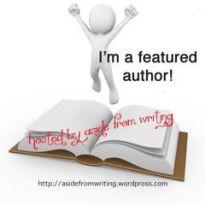
Yahoo Image Search
A few disclaimers here because we’re heading into delicate territory. I am not an expert on mental health by any means. I read up on it and have my own experiences to work off, which is what fuels these posts. Also, I always try to add some humor into my posts, especially the 7 Tip Lists. I find that humor can relieve tension and allow for serious stuff to be listened to and swallowed more easily. Finally, this is about actual depression and not a character simply feeling sad or upset. That brings us right to #1!
- Depression does not always, in fact it rarely, has a direct source. Your character can simply go into a depressed state or be there the entire time. Of course, it can be triggered by something, but it doesn’t always have such a direction. Good chance that they can’t even explain it. After all, if you can clearly explain what is causing the problem then it’s much easier to fix. Wouldn’t that be a nice addition to the depression diagnosis. Make my life easier.
- You really need to make sure that you don’t equate depression with simply being sad. A character can use the term since people do, but you need to remain aware of what this condition is. It is INTENSE sadness with a sense of worthlessness, hopelessness, and helplessness. You feel like the world is crushing you or that it would be better off without you. This is debilitating and it lasts for days or weeks or months or years to the point where life is difficult.
- Remember the symptoms for your character, but they don’t have to be imbued with everything off the list. Trouble sleeping and low energy can be there, but maybe they mask their depression with a false sense of optimism. Having a hard time focusing, being irritable, eating disorders, and an inability to gain pleasure or happiness from stuff are possibilities too. If you slap everything on your character and them handling their depression isn’t the main part of the story then you’re going to run into a lot of obstacles. So, consider what the story is before you decide on the degree.
- For the love of everything, don’t have the character snap out of their depression because a person gave them a pep talk. That really doesn’t work. Maybe it gets them to acknowledge the problem and get help, which is a good thing. On the other hand, it can just as likely make a person feel like they’re not being understood or even mocked, so they curl even further inside themselves.
- If you aren’t sure if something falls under depression or not then either do some research or skip it. This is like any other delicate situation that you’re including in your story. Sure, instinct and common sense can work if you’re able to imagine what it would be like for yourself. I do that with some of my things after reading up on the basics and factoring in my personality. Still, you want to be careful since people will look at this character very closely.
- Depression does not mean the character is useless, but good luck getting them to believe that. They will have moments where they cannot function and may fail because of their depression, which will make things worse. They can also have times when they save the day and remain depressed. This is the nature of the illness. A step forward can have absolutely no effect on their mental state while even a perceived stumble is the equivalent of stepping on somebody’s newborn baby. Not that thought specifically, but depressed people focus more on what they do wrong than what they do right.
- It’s very tempting for some people to use characters like this for humor or to play the ‘negative’ role. Yes, a person with depression can be a pessimist because they have trouble seeing the positive side of things. This isn’t always the case. A depressed character can also be shy and only speak when they muster up a lot of courage to voice their opinion. There’s a fear of rejection here that can be played out and create sympathy here. Again, it also depends on personality because some may be more chatty and open because they’re hiding their pain.





Would you say your Windemere characters Nyx, Sari and Delvin tended to be depressed, Charles?
At different times, they seemed to be experiencing depression, especially Nyx.
LikeLiked by 1 person
They had moments of sadness, but I wouldn’t call it real depression. Sari May be the exception. She’s still harboring a lot of pain from losing her clan, but she hides it with a happy and flirty personality. Nyx is just standoffish due to a lonely upbringing, but that goes away fairly quickly.
LikeLiked by 2 people
I got the impression that Nyx had bouts of depression because after her capture by Stephen, she had a lot of self doubt, or self worth, issues.
LikeLike
That was more trauma and fear. I’d label it closer to anxiety, but I don’t remember it lasting long considering how she got out of it. The Mercenary Prince, right?
LikeLiked by 2 people
Excellent post. I liked that you didn’t focus only on the chemical imbalance, like most people do, and that you mentioned most things from the perspective of the depressed person. And yes, thank you for mentioning there is such a stigma with depression, some people and society tend to think that a depressed person is useless or unable to “function properly” in society. I agree with you, it is a delicate subject to approach, especially for a writer of fiction, and more so these days, when everything is so misinterpreted, and people get so easily offended. Well said.
LikeLike
I’m leery about mentioning the chemical imbalance. That tends to get a negative reaction for some reason. Glad you agree with the stigma part.
LikeLiked by 2 people
This was insightful, thanks, especially the distinction between sadness and depression.
LikeLike
Glad you enjoyed it.
LikeLike
Reblogged this on Chris The Story Reading Ape's Blog.
LikeLike
Thanks for sharing.
LikeLiked by 1 person
Welcome, Charles 😃
LikeLike
All good points. I would not feel qualified to write a depressed character without a lot of research. I think your post underscored that for me.
LikeLike
Honestly, I think it’s one of the Easter mental illnesses to research and understand enough to write.
LikeLiked by 1 person
A tiny drip of all things listed will build a solid character. Good stuff here. Thanks!!!
LikeLike
Thanks. 😁
LikeLike
I think you nailed it. I don’t know if I could write a character like this, but if I did, these seem to be great starting points.
LikeLike
Thanks. Glad to help.
LikeLiked by 1 person
#4! #4!
Also, these points brought to mind “The Magnificent Seven,” which we just watched as a family. One of the gunslingers is battling some self-doubt or lack of confidence, but I now think all that was because of depression.
LikeLiked by 1 person
I keep wanting to see that movie and never get around to it. Saw clips of the original and ‘Seven Samurai’, but never the full movies. Cool that it touches on this a bit.
LikeLiked by 1 person
It’s a good one. I couldn’t help thinking it was cliché, and remembering “The Three Amigos,” but they did it first. 🙂
LikeLike
Thought it was even older than that.
LikeLiked by 1 person
Reblogged this on Author Don Massenzio and commented:
Check out this insightful post from Charles Yallowitz’s blog with 7 Tips to Writing Characters with Depression
LikeLike
Thanks for sharing
LikeLiked by 1 person
You’re welcome.
LikeLike
Reblogged this on Loleta Abi Historical & Fantasy Romance Author & Book Blogger for all genres and commented:
Good notations.
LikeLike
Thanks for sharing.
LikeLike
Thank you for sharing this! I might know some things about the illness because of my own experiences with it but I have never really thought about what is important to keep in mind when implementing a character with a depressive disorder. What I have realised though goes along the lines of 6 about the character being rather ‘useless’: This character lacks drive, lacks agency, so having them actually participate in their storyline is a challenge and people might get upset when a protagonist with depression is mainly having things done to them or fails to take decisions and carry them out…
LikeLike
I think 6 might be one of the biggest challenges. A depressed character who is still doing everything comes off as not having the illness. Doesn’t matter to some that there are people like that. An author may overcompensate by going to the other extreme, but then readers wonder why the character is there if they aren’t going to do any of the work to solve problems. You’re almost forced to do the ‘big recovery’ moment like a superhero getting their second wind if you want to salvage the character in the eyes of the readers. I think it can all be done well if there’s an inner monologue to some extent. If a reader understands the mentality then it can help.
LikeLike
Pingback: #1 Post of 2020: 7 Tips to Writing Characters with Depression | Legends of Windemere
Pingback: How To Write A Depressed Character (A Complete Guide) | OptimistMinds